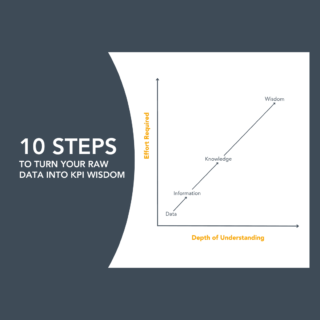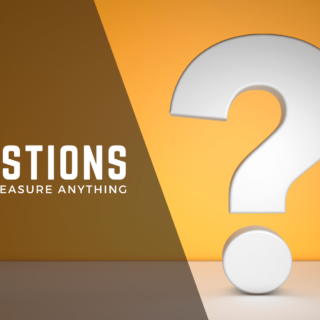There is something about performance measurement that makes many leaders (across all types of organizations) want to delegate the responsibility for measurement, seek quick fixes to their struggles, think dashboards are a panacea solution, and avoid investing time and effort into developing measurement skills and capabilities. Yet, they still seem to expect all the value that only well-designed measurement approaches can provide.
These leadership behaviours sabotage good measurement practice with two root causes:
- Measurement becomes a primarily technical activity.
- No one has overall responsibility for the process that produces insights, knowledge and learning from measurement.
Why do we Need “Well-made” Measurement Leaders?
Measurement Leaders are not measurement specialists. They are real organizational leaders of functional areas who hold senior positions with responsibility to improve how their areas perform. To a large extent, their leadership determines whether KPIs remain as “just data” or if KPIs are recognized for their power to drive learning and progress through the ability to create information, knowledge, and wisdom.
The 8 Key Ingredients that Make a Measurement Leader
Measurement Leaders are not born; they are made because of the beliefs and traits they have when it comes to meaningful measurement. They recognize that without great measures so much within their organization’s performance will be missed or lost.
When leaders understand their profound personal impact, they can leverage 8 ingredients to transform their measurement leadership within the organization:
- Share the Vision: They recognize the importance of having a small group of leaders who believe in the power and value that only a well-designed and supported performance measurement process can deliver during strategy execution.
- Lean into Difficulty: They acknowledge openly that creating and using great measures is not easy, and that resources, skills, capabilities, and systems are needed.
- Open to Change: They understand there are paradigm shifts that the organization must undertake if they are to have better measures and insights that can be used to achieve their desired future.
- Embrace Integration: They recognize the difference between the systemic change needed to achieve a great measurement approach vs simply “project managing” the implementation of KPI software and reporting.
- Courageous Communicator: They understand the problems that arise if a leader only gives performance measurement “lip service” vs authentically valuing and persistently communicating measurement’s true purpose, which is to foster learning, improvement, and experimentation.
- Waste Less. Invest More: They advocate for investment into improving performance measurement skills, capabilities, and processes within the organization, and know that the improvements will reduce the wasted time and effort currently taking place.
- Truth-seeker: They courageously surface the serious abuse and dysfunction that can exist within measurement systems (whether it’s intentional or unintentional gaming of data). They insist on the truth from their performance reports. Whether the news is good or bad, they value the knowledge gained, and they admonish when truth is “hidden” in order to deliver “good news”.
- Disrupt Dysfunction: They understand the dangers of linking measurement to judgement and rewards. They know that linking strong rewards too closely with measurement will almost always lead to dysfunctional effects that harm the healthy functioning of their departments.
Measurement Leadership Doesn’t Just Happen.
Consider, for a moment, who is responsible for measurement in your organization. It is probably several people. Now consider who is responsible for the transformation of measurement so it delivers the value the organization deserves from all the effort that is exerted. Is it anyone? Are they an executive leader?
When we view performance measurement as an organization-wide management system, and not as a financial or technical one, we can recognize that measurement requires leadership in its own right. It is time to look outside our traditional approaches of delegating measurement down the chain of command or giving it to the to finance department because it has a “math toolset”. Let’s, instead, intentionally seek out an influential Measurement Leader (like Google did when they placed Neil Hoyne as their Chief Measurement Officer) who nurtures the 8 ingredients within themselves and others, with the desire to turn the waste within the current KPI approach into extraordinary value.
(Special thanks goes to Dean R. Spitzer, PhD, Author of Transforming Performance Measurement, 2007 for his generosity of knowledge and thought within the measurement space.)



